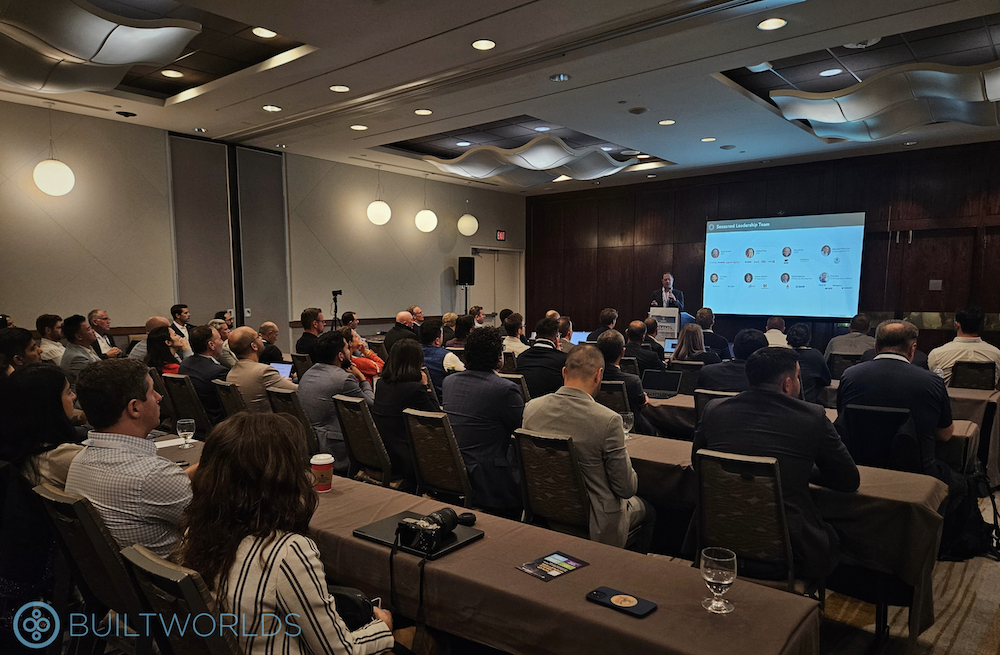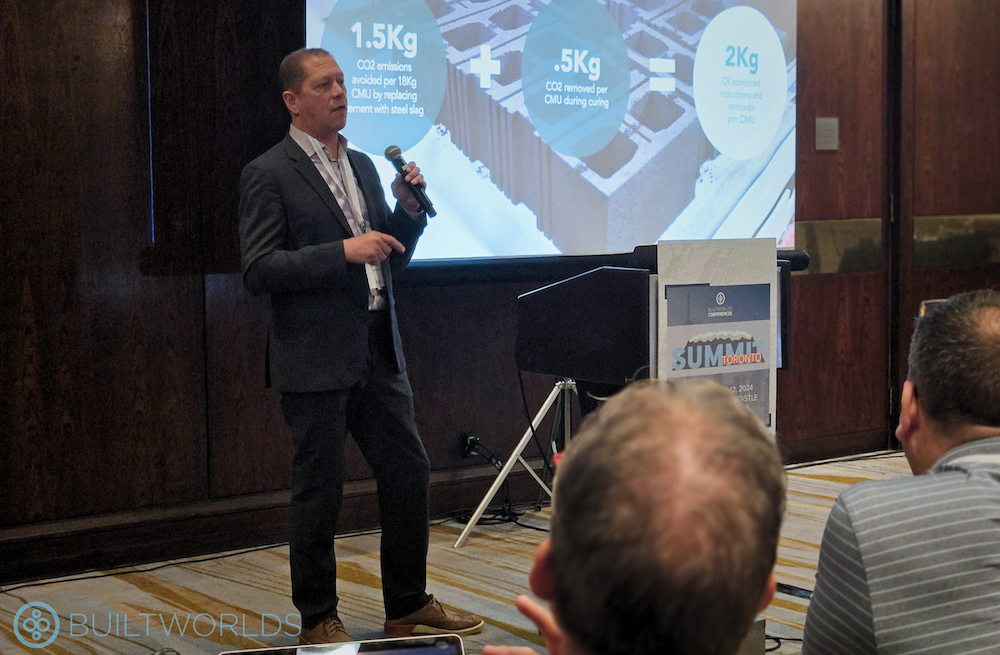
Nine promising startups, all serving the wider construction industry in some capacity, took center stage during BuiltWorlds’ recent Toronto Summit in a Demo Night competition that showcased compelling pitches, innovative technologies, and impressive go-to-market and growth strategies. While the roster of participating companies each provided evidence of pronounced market potential, our panel of expert judges ultimately agreed that Montreal-based CarbiCrete, a cement-free, carbon-negative concrete product pitched by one of its co-founders in Chris Stern, proved most promising.
Founded in 2016, CarbiCrete is a sustainable, cost-competitive alternative to cement-based concrete, both as a matter product as well as a process.
The Process and Product
“The CarbiCrete process is super simple,” Stern said. “It’s just like a regular concrete plant, but we have different input materials.”
Traditional concrete requires immense amounts of energy to manufacture, largely as a result of cement, which is created by mixing limestone with a silica source and firing it all in kiln at temperatures upwards of 2,700 degrees Fahrenheit. The process results in cement which is later used as a binder in concrete, but also creates an incredible amounts of CO2. In fact, one study estimated that cement accounts for 7% of all man-made greenhouse gas emissions.
The CarbiCrete process is similar, but there are key differences that make it much more sustainable.
“We have steel slag that goes into the process instead of cement,” Stern explained. “We mix this with aggregate and water to form blocks. These blocks end up going into a curing system, where CO2 cures the products and allows them to gain strength. It’s super simple, and what you end up with is a carbon-negative CMU or paver.”
In explaining his process, Stern claimed that with each CMU produced, the company ends up removing or abating about 2 kilograms of CO2—a claim made more impressive by the material’s reported price.
“It’s very different from most green products,” he explained. “Most of the time (green products are) two to three times more expensive. Ours is at cost parity right now. And when you build a plant directly in a steel plant, the margins are actually about 20% better.”

The Business and Strategy
Part of the appeal of CarbiCrete, both for investors as well as the competition’s judges, is that the company—which has already raised $40 million in capital, with an aim to raise $50 million more during its current Series B round—works on a licensing model, wherein manufacturers can buy the rights to produce and sell the material themselves.
“It’s an easily scalable business model,” said Stern, emphasizing the point through successes already under the company’s belt. “We’re actually producing at Patio Drummond in Quebec right now … (and) we’ve completed a pilot with Saint-Gobain.”
The company also has the benefit of a potential secondary revenue and scaling source through carbon credits. “We’ll have over a million by 2030, which we can monetize.”
Concrete is a massive market, explained Stern, about $440 billion in size total, with CarbiCrete’s portion being about $40 billion. While he admits a certain hesitation about possible resistance from incumbent concrete providers and the danger of scaling of too quickly or slowly, his confidence in the product ultimately trumps any worry.
“We have a carbon negative solution that’s cost competitive,” Stern said. “Everyone should be using it. Now the only thing to do is get it out there.”

Discussion
Be the first to leave a comment.
You must be a member of the BuiltWorlds community to join the discussion.